Malcolm R. Campbell's Blog, page 85
February 5, 2021
Another old white guy trying to escape the reformers’ notice
We can all agree on one thing, I think, and that is that most of the reforms underway have been too long in coming and are likely going to fall short of what’s needed.
As an old white guy, I can chip in a few dollars to organizations doing their best to push reforms along faster and make them more thorough, but since my income has almost always been below the poverty line, I can’t contribute what I don’t have.
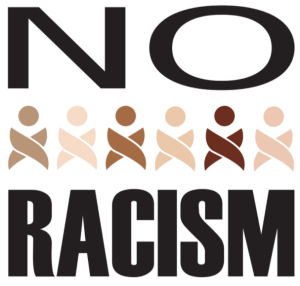 Nothing I can say in support of the cause is helpful because–as a white guy–I don’t have a place at the table since the problems are, according to angry sources, all my fault even if I don’t realize they are all my fault.
Nothing I can say in support of the cause is helpful because–as a white guy–I don’t have a place at the table since the problems are, according to angry sources, all my fault even if I don’t realize they are all my fault.
How did that happen? Well, unknown to me, I have been running the world, even though I never got a memo or attended a meeting for people running the world.
I feel profiled.
Perhaps turnabout is fair play inasmuch as many of those doing the profiling have been profiled in horrible ways I can never imagine. The fact that I didn’t personally do any of the profiling or communicate with those who were doing it seems to be irrelevant.
I thought that voting for people who said they wanted to bring about reforms was good. But, in doing that, we discover a flaw in the U. S. system of governance. Even though Congresspersons and Senators claim they represent us, they are really following their own opinions rather than listening to their constituents. I don’t like campaign proposals that begin, “When elected, I will do XYZ.” Excuse me, but you need to check with the voters to see if we want you to do XYZ. Stop casting votes without asking.
So, as a white guy, I’m assumed to be in agreement with the white guys who claim to represent my state. I hate to tell you, I don’t agree with them because they do what they do with no accountability. Once again, I feel profiled by people who think my lily-white Congressperson or Senator gets his or her orders from me.
I think of Cormac McCarthy’s line in Blood Meridian, “Whatever in creation exists without my knowledge exists without my consent.” I did not consent to the ills in our society, much less imagine that which went on in smoke-filled rooms that I didn’t know about.
What I knew about, I fought and still fight, but just how I do that isn’t any of the profilers’ business because they will say it wasn’t enough–and still isn’t. And, hell, they may be right, but not right enough to presume I’m part of the problem.
Might I suggest (at my peril, I know) that profiling white guys is costing the profilers many allies? Or, perhaps allowing us to work together doesn’t meet your platform’s needs. If so, I understand and will keep quiet about it.
–Malcolm
February 4, 2021
News: PEN AMERICA PUBLISHES FIRST-EVER GUIDE FOR ARTISTS AT RISK
January 26, 2021 News Release from PEN America
(New York, NY) — Today PEN America’s Artists at Risk Connection is releasing its Safety Guide for Artists, a comprehensive, first-of-its-kind guide available in English, French, and Spanish to help artists navigate, counter, and overcome threats and persecution from those seeking to silence their voices. In 2019, ARC—a project that connects imperiled artists worldwide with resources— had its highest number of caseload referrals since its founding in 2017 and has already broken that record in 2020, indicating the dire situation globally for artists and advocates.
The recommendations in the guide were informed by ARC’s experience connecting artists at risk to assistance as well as the vast knowledge of its global network of partners working to defend artistic freedom, whose research, campaigns, and collaborations provided instrumental information.
“This year, we’ve seen an explosion of protest movements worldwide, but also the desperate attempts by governments to unjustly and at times violently muzzle artistic freedom and dissent,” said Julie Trebault, director of ARC and one of the guide’s lead authors. “Artists have been leaders in the global movement for rights and justice, and are often targeted for arrest, detention, kidnapping and even murder. The potency of creative expression in kindling passions and changing minds is what makes regimes view artists as threatening. We hope that our guide will be a go-to resource for those facing danger and for the organizations worldwide doing their utmost to protect artistic freedom expression.”
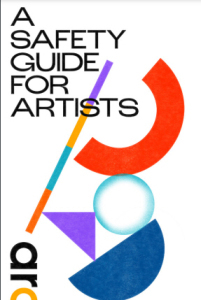 “Facing risk can be an incredibly isolating and confusing experience,” says Mai Khoi, a dissident Vietnamese musician who had to flee her country after experiencing persecution related to her pro-democracy activism in 2018. “A resource like this guide, which can help artists understand their vulnerabilities, learn how to overcome them, and hear from artists who have been in similar situations, will surely help future artists at risk feel less alone and better-equipped to withstand pressures.”
“Facing risk can be an incredibly isolating and confusing experience,” says Mai Khoi, a dissident Vietnamese musician who had to flee her country after experiencing persecution related to her pro-democracy activism in 2018. “A resource like this guide, which can help artists understand their vulnerabilities, learn how to overcome them, and hear from artists who have been in similar situations, will surely help future artists at risk feel less alone and better-equipped to withstand pressures.”
In the past year, artists have helped lead protest movements in the U.S. following George Floyd’s murder, as well as in Chile, Hong Kong, Nigeria, Belarus, and elsewhere around the world. The rise in global activism has led to a simultaneous rise in the risks of speaking out. Freemuse’s State of Artistic Freedom report earlier this year counted over 700 incidents in which artists’ rights were violated in some 93 countries, including censorship, assault and harassment, arrest and imprisonment, kidnapping, torture, and even murder.
These realities have only been exacerbated by the COVID-19 pandemic, as many governments have exploited the health crisis to crack down on dissent through national security and disinformation laws, while other governments fail to take proper steps to protect the health and livelihood of cultural workers. As part of the manual, ARC interviewed 13 leading artists to help inform the guide, surfacing the strategies they’ve used to counter repression, what resources exist, and what guidance or help others might need.
The guide offers robust recommendations to help protect artists and creative professionals who are being silenced for their work. Topics covered include:
Tactics governments and non-state agents use to attack artistsMethods of identifying and assessing risksDigital security threats and best preventative practicesStrategies for developing a personal safety planActions artists can take to gather evidence and ensure accountabilityOverview of the field of support available to artists at risk, as well as a list of resources“Over the past four years, we’ve seen that artists are at the forefront of the growing global movement to speak out: singing songs, penning slogans, painting murals, staging exhibitions and performances,” said PEN America’s Trebault. “The costs of such artistic freedom have risen dramatically. And while there are thousands of courageous artists who speak out despite the dangers, there are untold creative minds who live in fear, self-censored into silence.”
The guide breaks down how to manage threats from governments, but also from political groups, the police, and military, as well as the threats posed by extremist groups, fundamentalist communities, and even one’s neighbors or family. It comes as ARC itself has seen a skyrocketing caseload, with the vast majority of those accessing ARC’s network of supporters seeking help with relocation and emergency grants.
The full guide is available here and a downloadable PDF is available here.
February 3, 2021
There are Men too Gentle to Live Among Wolves
Do you know such men and women?
I do and I hold them in high esteem if they survive in a world where badass is championed and streetwise is celebrated because such men–and women–are not afraid to say there is much in the world that they do not want.
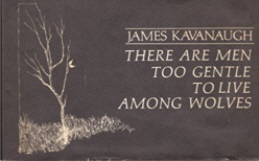 First edition cover
First edition cover
There are Men too Gentle to Live Among Wolves is of course the title of James Kavanaugh’s first of twenty-six books of poetry, a book that came out in 1970 and has gone through an infinite number of printings.
Kavanaugh (September 17, 1928 – 29 December 2009) was a priest in Flint, Michigan who called for church reform in his controversial 1967 book A Modern Priest looks at his Outdated Church. In his obituary, Aaron Dome said in the “Kalamazoo Gazette” that Kavanaugh “wrote in the book that he felt extreme frustration and confusion about being forced to give advice that was in accordance with the church, but that he felt was not in people’s best interest.”
Wayne Dyer said, “I can think of no living person who can put into words what we have all felt so deeply in our inner selves….”
That is his strength, putting into words what we have all felt, and I first found it in There are Men too Gentle to Live Among Wolves. We know there is a better way of life than the “I’m going to kick your ass” approach to interacting with others. It’s important to acknowledge this and then take a stand on its behalf.
As Kavanaugh wrote, “I am one of the searchers. There are, I believe, millions of us. We are not unhappy, but neither are we really content. We continue to explore life, hoping to uncover its ultimate secret. We continue to explore ourselves, hoping to understand. We like to walk along the beach, we are drawn by the ocean, taken by its power, its unceasing motion, its mystery and unspeakable beauty. We like forests and mountains, deserts and hidden rivers, and the lonely cities as well. Our sadness is as much a part of our lives as is our laughter. To share our sadness with one we love is perhaps as great a joy as we can know – unless it be to share our laughter.”
It’s not easy to stand against the popular tides of confrontation, political polarization, and cynicism, much less the insurrectionist, gun-toting groups that want to scare the rest of us into accepting their bankrupt notions.
But we have to try, don’t you think?
February 2, 2021
for the love of rock
Serious mountain climbers attend very closely to the nature of rock. Is it crumbly? Does it take a piton? In addition to the historic routes to the summits of mountains, guidebooks often mention the condition of the rock.
One thing I care about is the kind of rock I’m climbing on. Climbers’ guidebooks seldom mention this because, I suppose, the authors don’t care and/or they don’t know. When it comes to mountains, I see guidebooks as a teaching opportunity. Without becoming a geology textbook, guidebooks could easily note the name of a mountain’s rock formation or the principal rock along a climbing route.

NPS Glacier Park
I’m surprised that mountainous national parks, some of which have climbers’ guides, don’t mention the kinds of rocks or the specific rock formations (in passing) along with the recipes for getting to the summits. Or, if that’s too much trouble, the park service could even create a guidebook that addresses geology for a park’s major peaks–as a self-guided tour, perhaps, that would be suitable for those who view the mountains from a road or trail as opposed to climbing them.
The rock within a mountain or a mountain chain has an interesting history, often beginning as sediment deposited in an ancient sea during the Proterozoic eon and–as one might say for Glacier National Park–carved by water and ice for 60 million years to create the spectacular sights we see today.
Or, perhaps only a mountain climber who loves geology would care.

 My novels set in Glacier National Park include: “Mountain Song” and “The Sun Singer.”
My novels set in Glacier National Park include: “Mountain Song” and “The Sun Singer.”
February 1, 2021
Getting drunk doesn’t really solve anything
In the novel Duplicate Keys that I’m re-reading the characters get drunk because they didn’t pay attention to how many glasses of booze they had during the evening and/or because they think getting rip-roaring drunk will fix whatever is broken.
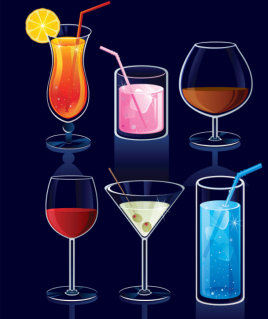 Dr. Eric Berne once wrote that people collect figurative green stamps, one for every bad thing that happened to them. Once they have a lot of stamps, they think they deserve to kill themselves, beat up people, have a fit, or get drunk. I love Dr. Berne’s cynical outlook on why people do the dumb stuff they do.
Dr. Eric Berne once wrote that people collect figurative green stamps, one for every bad thing that happened to them. Once they have a lot of stamps, they think they deserve to kill themselves, beat up people, have a fit, or get drunk. I love Dr. Berne’s cynical outlook on why people do the dumb stuff they do.
I’ve only been really drunk a couple of times. Things didn’t work out well in terms of how I felt the day after. Fortunately, I didn’t do anything criminal or otherwise negative while drunk. Tipsy is okay, drunk is bad–from my experience.
In books–and probably real-life–drunk people become abusive, do crazy things in public, wake up in the wrong bed. Saying “oops” doesn’t really fix whatever one did.
If there was ever a time to get drunk, other than World War I and II, it might well have been last week or last year. I suppose anyone who has gotten drunk thinks (while drunk) that s/he is immune to whatever’s wrong with the world. The trouble is, after the hangover finally does away, the bad stuff is still there.
If my getting drunk during a so-called lost weekend would get rid of COVID, I’d do it. But I don’t think I’d trust the bartender on such a deal. What about you? Did you ever get drunk for a damned good reason and wakeup two or three days later and find that the broken stuff in the world had gotten fixed?
I didn’t think so. Kind of sad, I think. As teens, some evil person said that getting drunk was a Panacea we could use to escape everything that’s bad. I wish it worked. I’m so discouraged that this “solution” to our problems only makes things worse.
January 31, 2021
On re-reading Smiley’s ‘Duplicate Keys’
I first read this 1984 book in the mid-1990s after enjoying Jane Smiley’s 1991 Pulitzer Prize winner A Thousand Acres. I was disappointed because I expected more spooky police work and/or big-city thrills and chills. As a film noir fan, I’m used to harsher and darker crime stories
Publisher’s Description
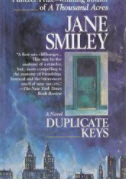 Alice Ellis is a Midwestern refugee living in Manhattan. Still recovering from a painful divorce, she depends on the companionship and camaraderie of a tightly knit circle of friends. At the center of this circle is a rock band struggling to navigate New York’s erratic music scene, and an apartment/practice space with approximately fifty key-holders. One sunny day, Alice enters the apartment and finds two of the band members shot dead. As the double-murder sends waves of shock through their lives, this group of friends begins to unravel, and dangerous secrets are revealed one by one. When Alice begins to notice things amiss in her own apartment, the tension breaks out as it occurs to her that she is not the only person with a key, and she may not get a chance to change the locks.
Alice Ellis is a Midwestern refugee living in Manhattan. Still recovering from a painful divorce, she depends on the companionship and camaraderie of a tightly knit circle of friends. At the center of this circle is a rock band struggling to navigate New York’s erratic music scene, and an apartment/practice space with approximately fifty key-holders. One sunny day, Alice enters the apartment and finds two of the band members shot dead. As the double-murder sends waves of shock through their lives, this group of friends begins to unravel, and dangerous secrets are revealed one by one. When Alice begins to notice things amiss in her own apartment, the tension breaks out as it occurs to her that she is not the only person with a key, and she may not get a chance to change the locks.
Jane Smiley applies her distinctive rendering of time, place, and the enigmatic intricacies of personal relationships to the twists and turns of suspense. The result is a brilliant literary thriller that will keep readers guessing up to its final, shocking conclusion.
Okay, maybe I wasn’t ready for the “enigmatic intricacies of personal relationships” in 1995. Or perhaps I’ve either mellowed or become more eclectic in my reading since then. Even so, I’ll probably never really grok the characters because they’re New Yorkers who enjoy subways, walking, lots of people, and all the other strangenesses I experienced whenever I visited NYC.
(I lived briefly in Syracuse as a kid, one of my brothers was born there, and then I went back there for grad school, but it’s on a different planet than the big city.)
The book is keeping my attention this time which says a lot for keeping books on one’s shelves and trying them out again later.
My novels include Fate’s Arrows (magical realism) and Sarabande (contemporary fantasy). Both novels are available in paperback, hardcover, Kindle, and Nook.
January 30, 2021
The Big Grape-Nuts Shortage
Just to clarify. The shortage of this venerable Post cereal, created in 1897, is big, not the Grape-Nuts. Who do we blame for this? Consumers. Cereal sales had been falling until the pandemic sent millions of people to the cereal aisles they didn’t know existed.
 When I was a kid, my brothers and I campaigned for Sugar Crisp and Frosted Flakes while our parents stocked up on Grape-Nuts, the now discontinued Grape-Nuts Flakes, and the now discontinued Krumbles. When Krumbles went away, I switched over to Grape-Nuts.
When I was a kid, my brothers and I campaigned for Sugar Crisp and Frosted Flakes while our parents stocked up on Grape-Nuts, the now discontinued Grape-Nuts Flakes, and the now discontinued Krumbles. When Krumbles went away, I switched over to Grape-Nuts.
My claim was that grape nuts were really scuppernongs that were harvested so late in the season that they couldn’t be eaten off the vine, much less turned into wine and jelly.
Our grandfather claimed that he’d been eating Grape-Nuts since he was a farmer in Illinois because he was ahead of his time and lined up for the first ready-to-eat cereal. However, he claimed it was made out of soybeans and that the smell that once hovered over Decatur, Illinois from the Staley Company was soybeans roasting over an open fire to be shipped to C. W. Post for the cereal.
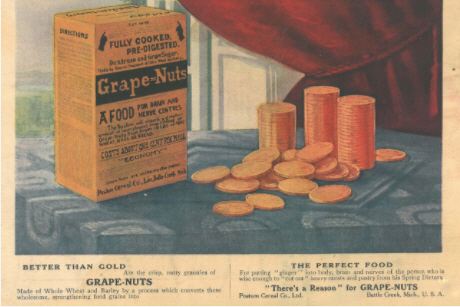
Our parents said the cereal was made from wheat flour and malted barley flour and other stuff. The “other stuff,” it seemed, left room for either soybeans or scuppernongs.
According to Post, “So, why is it called Grape-Nuts? As with many great emblems in history, there are two versions of the story. One says that Mr. Post believed glucose, which he called ‘grape sugar,’ formed during the baking process. This, combined with the nutty flavor of the cereal, is said to have inspired its name. Another explanation claims that the cereal got its name from its resemblance to grape seeds, or grape ‘nuts.’”
Years after our family’s debates about soybeans and scuppernongs, Grandfather died, and when we read his will we found that he had left each of us 100 pounds of Grape-Nuts because, as the old ad said, “they were better than gold.” Unfortunately, wevils ate away our riches at the warehouse, and this explains why we didn’t go to Harvard or Yale or the Riviera.
Nonetheless, I’ve been loyal to the cereal for old times’ sake.
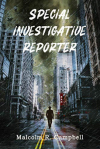
 My books include Fate’s Arrows, The Sun Singer, and Special Investigative Reporter.
My books include Fate’s Arrows, The Sun Singer, and Special Investigative Reporter.
January 29, 2021
Just as I am
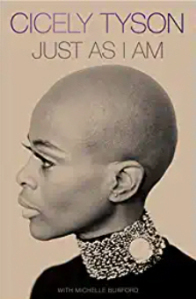 “Just As I Am is my truth. It is me, plain and unvarnished, with the glitter and garland set aside. In these pages, I am indeed Cicely, the actress who has been blessed to grace the stage and screen for six decades. Yet I am also the church girl who once rarely spoke a word. I am the teenager who sought solace in the verses of the old hymn for which this book is named. I am a daughter and mother, a sister, and a friend. I am an observer of human nature and the dreamer of audacious dreams. I am a woman who has hurt as immeasurably as I have loved, a child of God divinely guided by His hand. And here in my ninth decade, I am a woman who, at long last, has something meaningful to say.” –Cicely Tyson
“Just As I Am is my truth. It is me, plain and unvarnished, with the glitter and garland set aside. In these pages, I am indeed Cicely, the actress who has been blessed to grace the stage and screen for six decades. Yet I am also the church girl who once rarely spoke a word. I am the teenager who sought solace in the verses of the old hymn for which this book is named. I am a daughter and mother, a sister, and a friend. I am an observer of human nature and the dreamer of audacious dreams. I am a woman who has hurt as immeasurably as I have loved, a child of God divinely guided by His hand. And here in my ninth decade, I am a woman who, at long last, has something meaningful to say.” –Cicely Tyson
The scenes with Cicely Tyson and Viola Davis in the TV series “How to Get Away With Murder” were raw, unyielding, and true. Before that, Tyson walked many miles in many roles since most of us became aware of her in “Sounder” (1972) and “The Autobiography of Miss Jane Pittman” (1974), after some nice roles in the 1960s.
She was the actress I most wanted to meet, not outside some stage door, but at a gathering where we could talk because, in her eyes, I saw wisdom that–now that we lost her January 28th–I hope to find in Just as I Am.
Long-time actors and actresses have much to tell us, partly from their exposure to so many roles and to the business of making plays and movies, but also from finding a way out of hard-times beginnings to success. In many ways, one can see the soul and experience of a performer in the way s/he presents his/her most difficult roles.
If you can find the episodes (possibly on YouTube) of “How to Get Away With Murder” with Tyson that aired (I think) during the series’ two final years you will find her best work of late and understand why authors and others could have learned so much from her had she taught a class.
“I never really worked for money,” she said in her last interview. “I’ve worked because there were certain issues that I wish were addressed about myself and my race as a Black woman.”
She certainly did that,
–Malcolm
January 28, 2021
MHS PORTRAIT EXHIBIT SHOWS ECLECTIC SLICE OF MONTANANS
The Montana Historical Society’s newest exhibit, Who Speaks to You? Portraits from the Permanent Collection, includes an eclectic mix of paintings, juxtaposed to encourage visitors to look at portraits in a new way.
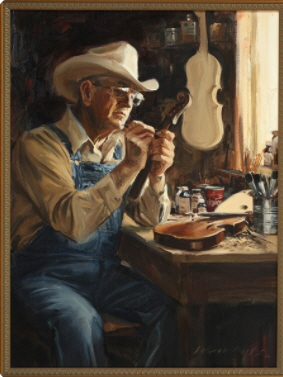 Portraits can reveal a lot about people and their times, if you know how to look for clues, notes Amanda Streeter Trum, curator of collections at MHS. Examining objects in the artwork, considering the backdrop, and observing the artist’s color palette reveal important information about the subject of the art.
Portraits can reveal a lot about people and their times, if you know how to look for clues, notes Amanda Streeter Trum, curator of collections at MHS. Examining objects in the artwork, considering the backdrop, and observing the artist’s color palette reveal important information about the subject of the art.
“Experiencing art is a really personal thing; we all bring our unique experiences and opinions that color the way we may or may not interact with the piece in front of us,” Streeter Trum said. “We hope the exhibit will provide visitors an opportunity to see portraits in a different way or discover a new artistic style they enjoy.”
The exhibit opened Sept. 10, and no opening reception was held due to concerns about the coronavirus pandemic.
It includes about 50 portraits of interesting people and pets whose presence has enriched the lives they touched and, in some cases, the larger state of Montana. The artwork is both traditional as well as abstract, Streeter Trum said.
“So many traditional portraits represent only a certain segment of society, often wealthy white men,” she added. “This is a playful exhibit and we want to show an eclectic mix of people and art.”
The museum–at 225 North Roberts, P.O. Box 201201, Helena, MT 59620-1201– is open to the public from 9 a.m. to 5 p.m. Monday through Saturday.
–
I wish I could visit, but Helena is a bit of a drive from North Georgia. I’ve been a member of MHS since the 1980s, and am happy to say its research department has been very helpful in my research for my Montana Novels.
January 27, 2021
Dear Barnes and Noble
 I visited your site to day to buy three books. After several hours of chat sessions, I see why you are having trouble competing with Amazon:
I visited your site to day to buy three books. After several hours of chat sessions, I see why you are having trouble competing with Amazon:
Me: I have $50 worth of books sitting in my cart, stuck there for eternity, I guess, because your software says the address I’ve used at B&N for years is suddenly an APO address.
First Chat Agent: Cancel the order and re-enter it and everything will be fine.
Me: I did what the first agent suggested and everything isn’t fine.
Second Chat Agent: Clear your cache, delete cookies, and change browsers.
Me: I did everything the previous agents suggested, and things aren’t fine.
Third Chat Agent: Can I look at your cart?
Me: Sure.
Agent: Is this the shipping address you always use?
Me: Yes.
Agent: Things appear to be fucked up.
Me: (After Agent Three suddenly disappeared.) Hi agent four, can you fix this mess?
Agent Four: May I kindly take 3-5 minutes to look at your cart.
Me: Sure. It’s only taken 90 minutes so far, so have at it.
Agent Four: I apologize for the fact that some of the information on our website is inaccurate.
Me: Which information?
Agent Four: Is there anything else I can hel you with?
Me: Apparently not.
I signed off CHAT and found an e-mail message in my inbox. “Hi, Malcolm, the following items have shipped.” What a frustrating experience. Maybe I’ll go back to Amazon .






